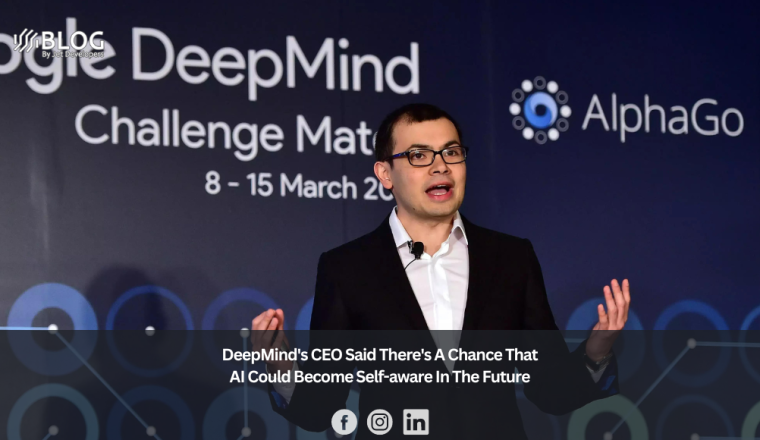DeepMind’s CEO Said There’s A Chance That AI Could Become Self-aware In The Future
Demis Hassabis, the CEO of DeepMind, an AI research lab co-founded in 2010, recently stated that there is a possibility of AI becoming self-aware one day, which would entail the technology having emotions and feelings that mirror those of humans. The idea that AI could have consciousness and experience subjective experiences similar to humans is a topic of ongoing debate and research in the field of artificial intelligence.
The CEO of Alphabet-owned AI research lab, DeepMind Technologies, spoke about the potential of artificial intelligence in an interview with CBS’ “60 Minutes,” which aired on Sunday.
DeepMind CEO Demis Hassabis told CBS that he thinks that AI might one day become self-aware.
“Philosophers haven’t really settled on a definition of consciousness yet but if we mean self-awareness, and these kinds of things … I think there’s a possibility that AI one day could be,” he said.
This would mean that AI has emotions and feelings that mimic those of humans. One former Google engineer was fired after making unfounded claims that an AI bot that the tech firm was developing was sentient. Experts told Insider that the bot was simply programmed to sound real and that is far off from developing such machines.
AI has experienced rapid development in recent months as a result of the launch of OpenAI’s chatbot ChatGPT in October, which took the internet by storm because of its wide-ranging abilities like writing essays and songs and even coding — major tech firms like Google and Microsoft have launched similar tools in an effort to compete.
DeepMind was founded in London in 2010 by Hassabis and cofounders Shane Legg and Mustafa Suleyman. Their goal was to create AI systems that could perform certain tasks as well as humans could. The company was acquired by Google in 2014 and later became a subsidiary of Alphabet after Google’s restructuring.
One of its early successes was creating a computer program that beat a human champion in a board game considered to be harder than chess. It’s also contributed to medical research by developing an AI program that predicts the shape of proteins with a high level of accuracy — something researchers struggled with for decades. The discovery could help doctors improve the treatments of patients and prescribe the best medication.
Hassabis told CBS that he believes AI is “the most important invention that humanity will ever make.”
When asked about whether consumers will adapt easily to AI, he said: “We’re an infinitely adaptable species,” and used smartphones as an example of how quickly people can adapt to new tech.
“This is going to be another one of those changes like that,” he said.
DeepMind did not immediately respond to Insider’s request for comment about Hassabis’ comments on AI.



